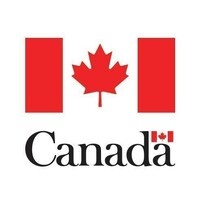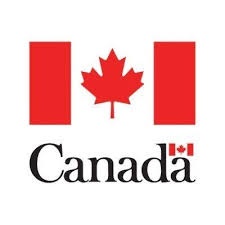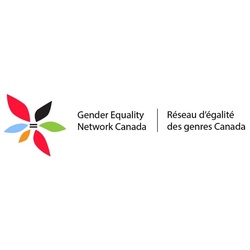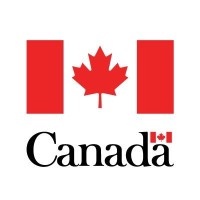
Open
Ecological Gift Program
Last Update: March 4, 2026
Canada
Offers tax incentives for donating ecologically sensitive land
Tax Credits
At a glance
Funding available
Financing goals
Reduce the ecological footprint
Eligible Funding
- No Condition
Timeline
- Unspecified
Eligible candidates
Eligible Industries
- Agriculture, forestry, fishing and hunting
- Other services (except public administration)
- Public administration
Location
- Canada
Legal structures
- Non-profit
- Public or Parapublic institution
Annual revenue
- All revenue ranges
Organisation size
- All organization sizes
Audience
- Canadians
Non-profit candidates
Sector of operation
- All industries
Target groups
- All the groups
Revenue structures
- All structures
Scope
- All dimensions
Overview
The Ecological Gifts Program provides significant tax benefits, with the appraised fair market value of donated ecologically sensitive land or partial interests exceeding one billion dollars since inception, to incentivize the protection of Canada’s natural habitats. The program supports donations of land, conservation easements, covenants, or servitudes to eligible charities or government agencies for the perpetual conservation of biodiversity and environmental heritage.
Activities funded
- Donation of ecologically sensitive land or partial interests in land to qualified recipients for long-term environmental conservation.
- Establishment of conservation easements, covenants, or servitudes to protect natural features of properties in perpetuity.
- Collaborative conservation projects with registered environmental charities or governmental organizations to preserve biodiversity and critical habitats.
- Transfer or enhancement of designated wildlife habitats, including land management practices that support species at risk.
- Protection of natural areas such as wetlands, forests, grasslands, and other significant ecosystems through legal agreements or outright donations.
Eligibility
- The applicant must be a registered environmental charity with the Canada Revenue Agency, a federal, provincial or territorial government, a Canadian municipality, or a municipal or public body performing a function of government.
- Registered charities must apply to and be approved by the Ecological Gifts Program to become eligible recipients.
- Charities must have as one of their primary purposes the conservation and protection of Canada's environmental heritage or a similar objective.
- The applicant must demonstrate the organizational capacity, including financial and human resources, to receive and manage ecological gifts.
Who is eligible?
- Individuals and corporate landowners with ecologically sensitive land
- Registered environmental charities eligible under the program
- Federal, provincial, and territorial governments
- Canadian municipalities
- Municipal or public bodies performing a function of government
Eligible expenses
- Appraisal fees for the determination of fair market value by a qualified appraiser.
- Legal costs directly related to the transfer of ecologically sensitive land or partial interests (such as covenants, easements, or servitudes).
- Survey costs necessary to establish the boundaries of the donated property or interest.
- Documentation and administrative expenses related to the preparation and submission of required materials for donation certification and tax purposes.
Eligible geographic areas
- All provinces and territories across Canada
- Municipalities within Canada
- Border regions including neighbouring provinces, Canadian territories, or American states sharing a border with Quebec, subject to specific conditions
Selection criteria
- The ecological sensitivity of the land must be certified according to national and, if applicable, provincial or territorial criteria.
- The donation must include a brief assessment outlining the ecological character and significance of the property, referencing current condition and threats, habitat types, and presence of significant species.
- Supporting documentation such as maps, legal description, and evidence of ecological value must be provided for review.
How to apply
- Step 1: Assess Eligibility and Prepare Required Information
- Contact a recipient eligible to receive ecological gifts (e.g., qualified environmental charity, government).
- Confirm the property meets national and applicable provincial ecological sensitivity criteria.
- Work with the recipient (if necessary) to gather required information and documentation.
- Step 2: Submit the Ecological Sensitivity Assessment
- Collect and compile the following for submission to your regional Ecological Gifts Program (EGP) coordinator or delegated certification authority:
- Full name, email, and mailing address for each donor, with confirmation of willingness to participate and ownership of the property.
- Name, address, and charitable registration number (if applicable) of the recipient, and confirmation of recipient’s eligibility.
- Complete legal description of the property under a land titles act or registry system.
- Type of donation (fee simple, conservation easement, covenant, servitude, or other), and for partial interests, a copy of the legal agreement.
- Surveyed area (or approximate area if not surveyed) in hectares or acres, and areas gifted versus total property (as applicable).
- A brief two-page assessment of the property’s ecological character, including criteria and present condition, habitat types, significant species, buildings/structures, supporting reports/documents, any official rankings, proposed enhancement or rehabilitation measures, and relevant maps and aerial photographs.
- Current status, motivation for donation, anticipated timing, and recipient’s intentions for future management of the land.
- Send the compiled assessment and documentation to your regional EGP coordinator or delegated certification authority for review.
- Collect and compile the following for submission to your regional Ecological Gifts Program (EGP) coordinator or delegated certification authority:
- Step 3: Certification of Ecological Sensitivity
- The regional coordinator or delegated authority reviews the submission to determine whether the land qualifies as ecologically sensitive.
- Receive notification of certification status from the EGP.
- Step 4: Property Appraisal and Determination of Fair Market Value
- Obtain an independent appraisal of the property's fair market value from a qualified appraiser, following EGP’s Guidelines for Appraisals.
- Complete the Application for Appraisal Review and Determination of the Fair Market Value of an Ecological Gift.
- Include copies of the appraisal report and all required supporting documents.
- Submit the application and documentation to your regional EGP Coordinator.
- Each donor must sign the application (if multiple donors, each must sign or submit a separate identical application).
- Step 5: Fair Market Value Review
- Environment and Climate Change Canada (ECCC) reviews the appraisal.
- Receive a Notice of Determination of Fair Market Value from ECCC.
- If desired, you may: accept the value, request a redetermination (with new information), or withdraw the donation.
- Step 6: Finalize the Donation
- If accepting the determined value and the property transfer has not occurred, complete the legal transfer with the recipient organization.
- Provide proof of completed donation to the EGP coordinator to proceed with value certification.
- Step 7: Receive Certified Statement of Fair Market Value
- Once donation is finalized, ECCC issues the Statement of Fair Market Value for tax purposes.
- The recipient organization issues an official donation receipt.
- Step 8: Claim Tax Benefits
- Attach the Statement of Fair Market Value, Certificate of Ecologically Sensitive Land (or Quebec's required certificate), and official donation receipt to your income tax return in order to claim available federal and provincial tax credits.
- Step 9: Contact for Additional Support
- Contact the National Secretariat or your regional EGP coordinator for further guidance as needed.
Additional information
- Ecological gifts must be made in perpetuity, meaning restrictions or protections remain regardless of future ownership changes.
- Safeguards apply: unauthorized land use changes or dispositions may trigger a federal tax equal to 50% of the property's current fair market value.
- The certified fair market value of the ecological gift will be valid for income tax purposes for two years, even if the donation is withdrawn from the program.
- Donors can appeal the determined fair market value to the Tax Court of Canada (or the Court of Québec) within 90 days of receiving the Statement of Fair Market Value, after a redetermination.
Contacts
pde-egp@ec.gc.ca
(800)668-6767
Canada
Apply to this program
Frequently Asked Questions about the Ecological Gift Program Program
Here are answers to the most common questions about the Ecological Gift Program. This section explains what the program is, how much funding is available, eligibility requirements, application deadlines, and other important details to help you determine if this grant is right for your business.
What is the Ecological Gift Program?
Who is eligible for the Ecological Gift Program program?
What expenses are eligible under Ecological Gift Program?
Who can I contact for more information about the Ecological Gift Program?
Where is the Ecological Gift Program available?
Is the Ecological Gift Program a grant, loan, or tax credit?
Who are the financial supporters of the Ecological Gift Program?
Apply to this program
More programs like this

Grant and FundingClosed
Canada Public Transit Fund
Supports long-term public transit and active transportation infrastructure development

Grant and FundingClosed
Canada Service Corps – Service Placements Regional Stream
Funding for organizations to develop youth volunteer service placements

Grant and FundingClosed
ISED — Artificial intelligence (AI)
Supports testing innovative AI prototypes for Canadian government needs

Grant and FundingOpen
Active Transportation Fund
Supports infrastructure projects for safer, more accessible active transportation

Partnering and CollaborationGrant and Fundingarchived
Equality for Sex, Sexual Orientation, Gender Identity and Expression Program
Supports equality initiatives for sex, sexual orientation, and gender identity

Grant and FundingClosed
Crime Prevention Action Fund (CPAF)
Supports evidence-based crime prevention initiatives for at-risk communities

Grant and FundingClosed
Substance Use and Addictions Program (SUAP)
Supports innovative projects addressing substance use prevention and treatment

Grant and FundingOpenClosing Soon
Humanitarian Workforce (HWF) - COVID-19 and other large-scale emergencies
Supports NGOs in emergency response and capacity building activities

Grant and FundingClosed
Rail Safety Improvement Program (RSIP) - Research and Education Component
Funding for rail safety infrastructure, research, and education projects

Grant and FundingClosed
Enhanced Road Safety Transfer Payment Program (ERSTPP)
Funds projects to enhance road safety and reduce traffic injuries
Sign up to our platform to access the Ecological Gift Program information sheet for free
Get access to 10,000+ programs, practical guides, personalized alerts, and an AI assistant to support your grant applications.